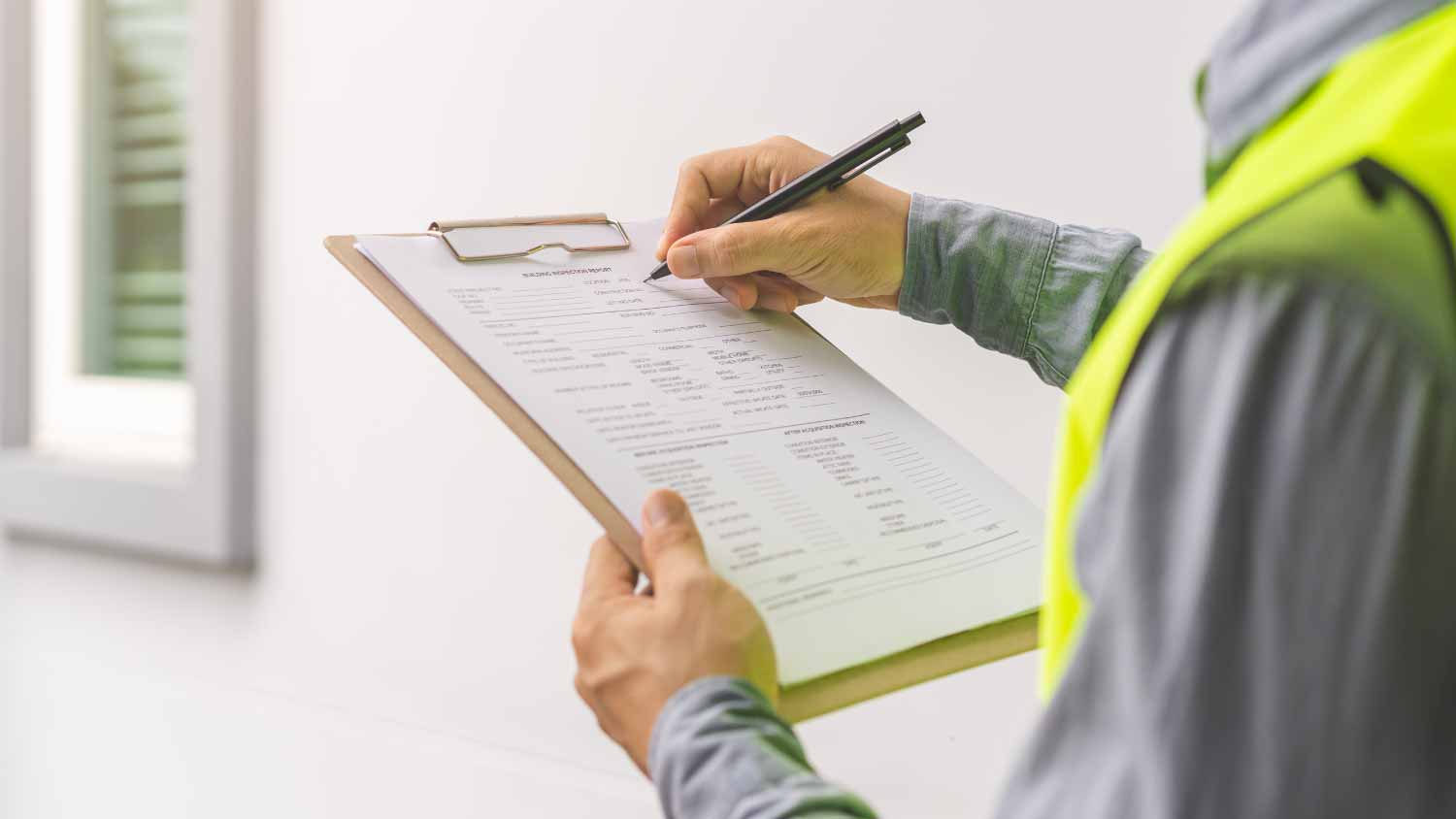
Drone roof inspection costs vary depending on the roof’s size, complexity, and material. Use this guide to budget for a drone roof inspection.
Waiving a home inspection could leave you with a mound of regret


It’s often not a good idea to waive a home inspection, as it could uncover hidden property damage that will cost you later.
Waiving an inspection doesn’t actually mean you can’t conduct one—it just means you can’t back out of the deal without penalty.
Instead of waiving the inspection, consider coming in pre-approved and making your offer more desirable by bumping up your down payment.
Conducting a home inspection is a normal part of buying a home, but in highly competitive markets or in situations where you or the seller want or need to close quickly, you might consider waiving the home inspection. In this article, we’ll explain why you should generally avoid doing this, some upsides and downsides of waiving the home inspection, and some alternatives you have to keep the deal intact and still conduct an inspection.
In most cases, it’s not a good idea to waive a home inspection, even on new construction. Home inspections can uncover hidden issues with a home that could end up costing you tens of thousands in repairs right after closing. Even if you plan to move forward with buying the home as-is, it’s a good idea to get an inspection just to know what you’re getting yourself into.

With that being said, there are a few reasons you might consider waiving a home inspection.
In a seller’s market, where the demand for homes outpaces the supply, many homes go into a bidding war, and buyers will do anything they can to get their offers approved. If other buyers are waiving the inspection, you might feel you need to do the same to remain competitive. Waiving the inspection can help secure a deal, so it’s an option to consider if you’re desperate for a home.
Home inspections take just a few hours to complete, but you may need to wait a few days or even a week or two to get it scheduled, depending on the availability of the local home inspector. If you’re in a rush, you might consider waiving the inspection to get things moving along.
You should still get a home inspection on new construction, as there can be just as many issues as with an aging home. However, builders often offer a warranty that could cover some of the problems that might show up on a home inspection checklist. A home inspection is still a good idea, but there’s slightly less risk involved with waiving the home inspection when buying a new house.
Some sellers may try to expedite the sale process by having the home inspected before listing. Using a home inspector that you hire is still a better option, but you could consider waiving the inspection if the seller already has home inspection results that you trust. Just make sure the issues you’re concerned with are included in the home inspection.
There are two main reasons you shouldn’t waive a home inspection, and the potential downsides of waiving outweigh the benefits of skipping the inspection.
The biggest downside of waiving a home inspection is that you could be buying a home with major issues. An inspection will uncover structural damage, issues with mechanicals, and more that could cost you tens of thousands of dollars and endless frustration after closing.
If you attend the home inspection yourself, the inspector will point out the location of water meters, electrical panels, sub-panels, mechanicals, potential problems to look out for, and more. You’ll miss out on that information if you skip the inspection.
If you feel you need to make your offer more competitive, you can consider a few alternatives to waiving the home inspection.
Get pre-approved: Couple your offer with a pre-approval for a mortgage to show the seller that you’re a serious buyer.
Increase your down payment: Offering more as a down payment can also show a seller that you’re serious about buying a home and have the funds to move forward with the sale.
Let the seller know you won’t ask for repairs: Some sellers just don’t want to be bothered with carrying out repairs before closing. If you note that you only want an informational type of home inspection and won’t be asking for repairs but still want the inspection done, a seller may be less likely to move on to the next offer.
Just do specific types of inspections: Sometimes, you can speed up the inspection process by just carrying out specific inspections for things you’re concerned about. Opting for a structural inspection over a home inspection could take just a few days as opposed to a week or two.
From average costs to expert advice, get all the answers you need to get your job done.

Drone roof inspection costs vary depending on the roof’s size, complexity, and material. Use this guide to budget for a drone roof inspection.

If you’re buying a home, having an inspection offers reassurance that it’s in good condition. How much a home inspection costs varies depending on the home's size, age, condition, and location.

Preparing for your next roof inspection? Here are five common roof inspection questions you'll want to discuss with your contractor.

Appraisals and home inspections are crucial parts of the home-buying process. Learn about the key differences between appraisals and inspections.

A home inspection is a necessary part of selling your home. Learn how to prepare for a home inspection for the best results and a good inspection report.

For buyers, knowing what an inspection contingency is means knowing your options. Learn about the implications of an offer that’s contingent on inspection.